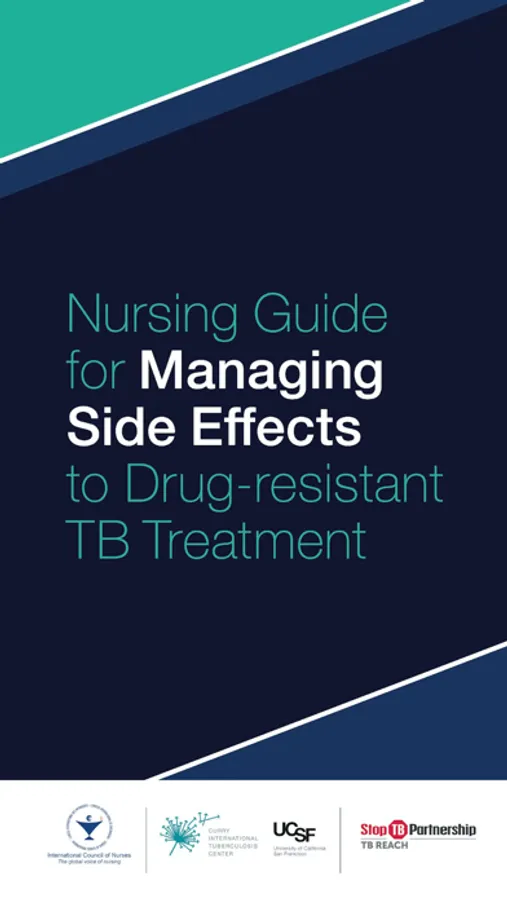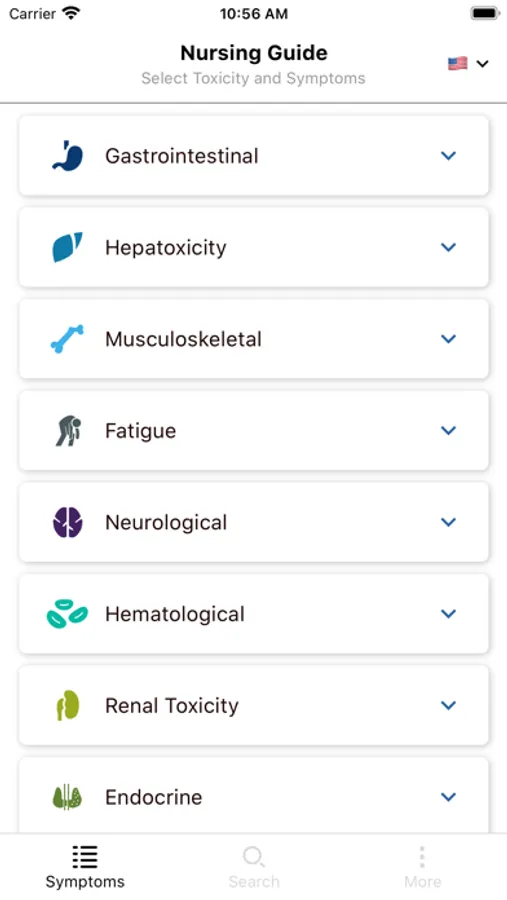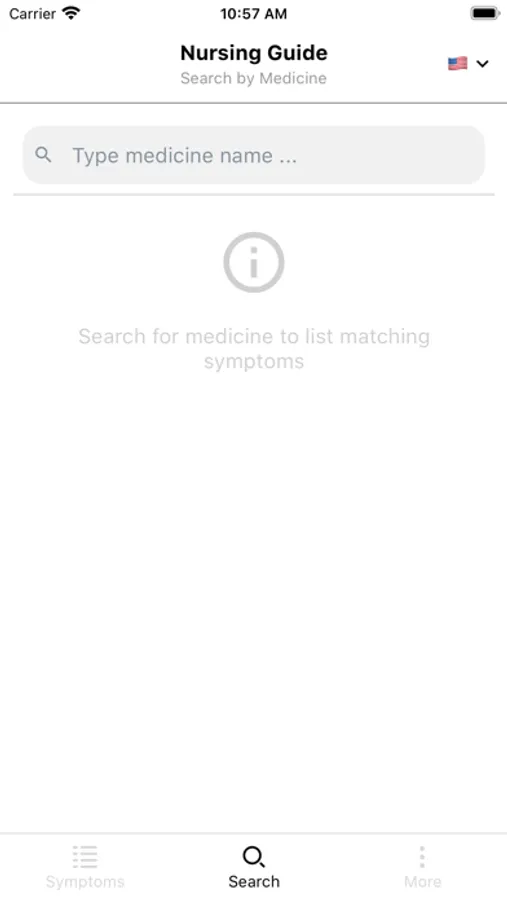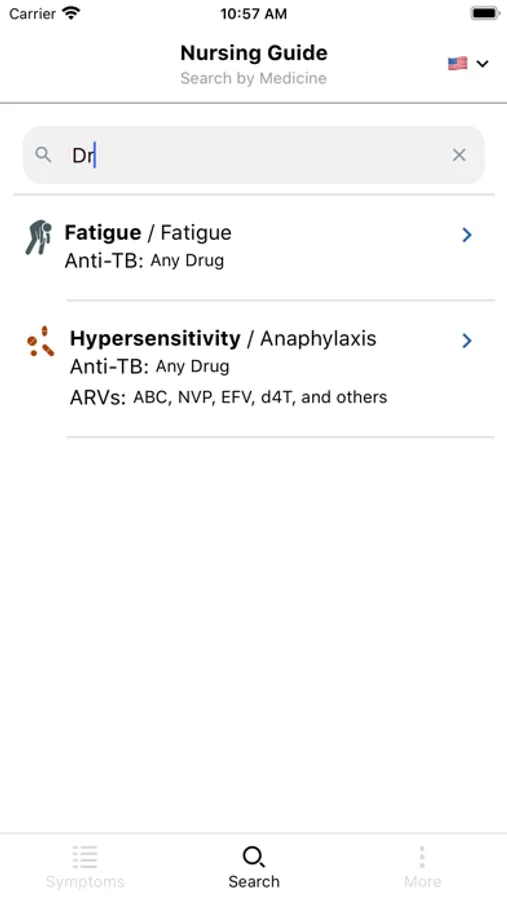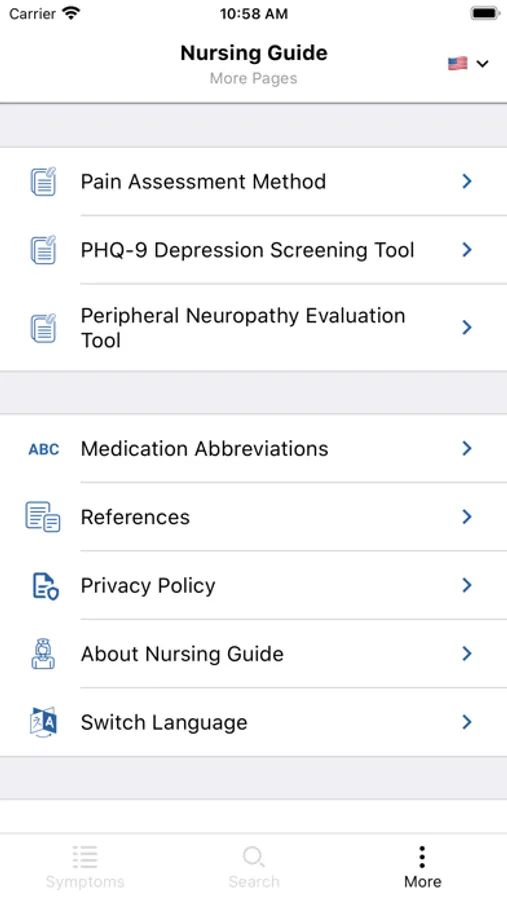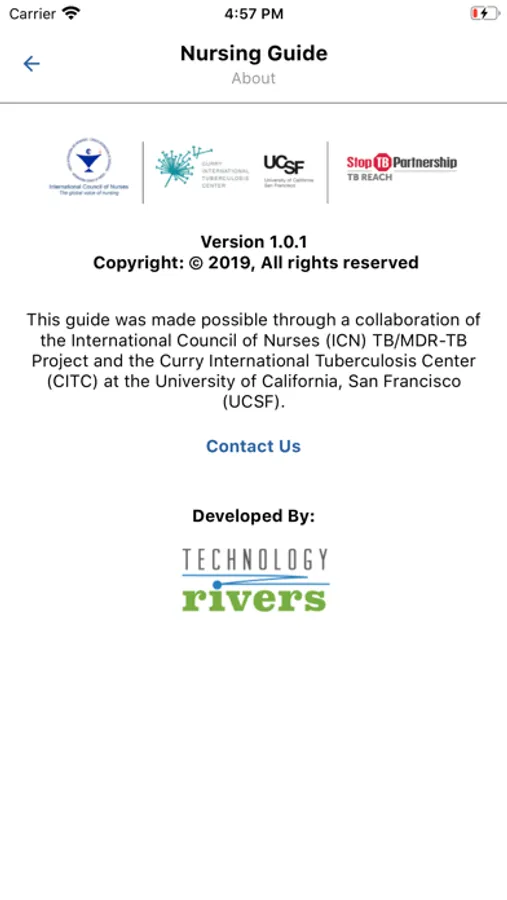Nursing DR-TB Guide
International Council of Nurses
5.0 ★
store rating
Free
About Nursing DR-TB Guide
Nurses are often the first to hear of a patient’s side effect(s) during TB treatment and therefore, are well positioned to intervene. In response to requests from nurses for additional nursing practice resource tools, this guide was developed to help nurses assess for and respond appropriately to side effects related to anti-TB medications. The guide is designed as a reference so nurses can quickly:
1. Identify symptoms that may indicate an anti-TB or anti-retroviral medication-related side effect;
2. Assess for severity as well as other potential contributors; and
3. Intervene appropriately to minimize patient discomfort, reduce side effect progression, and ultimately support successful treatment completion.
This guide was developed by nurses with experience in the clinical care and programmatic management of TB and DR-TB in both high- and low-resource settings. Nursing and DR-TB literature were reviewed to establish best practice nursing assessment and intervention guidance. Nurses caring for patients with DR-TB field tested the job aid and provided feedback which was used to inform final content and format.
How Information is Organized
The guide is organized into the major types of toxicities, the associated symptoms, possible offending medications, and the suggested nursing assessments and interventions. Some symptoms (e.g. nausea) may be associated with several underlying causes and may be mild, or a symptom of a more serious medical situation requiring urgent attention. Additional information (comments) are provided for each toxicity to highlight relevant clinical information that may assist in management of side effects. Medications more strongly associated with the side effect appear in bold text. The appendices include tools nurses can use to more thoroughly assess patient complaints of pain, depression and neuropathy.
The scope of this guide is limited to address management of medication-related side effects and does not address management of symptoms due to the disease itself or other important aspects of nursing care (such as addressing barriers to adherence). Additionally, the guide does not replace the need for training and mentoring for nurses caring for patients with DR-TB.
We encourage our nurse colleagues to continue to identify gaps in resource and training materials so that we can work to address the needs. Please contact the authors if you have questions.
Print versions of the guide can be found online at the following websites:
• www.icn.ch/what-we-do/projects/tbmdr-tb-project
• www.currytbcenter.ucsf.edu/products
Authors
Ann Raftery, MS, BSN, RN
Curry International Tuberculosis Center, University of California,
San Francisco, San Francisco, CA, USA
Carrie Tudor, PhD, MPH, BSN, RN
International Council of Nurses, Geneva, Switzerland
Lisa True, MS, RN
Curry International Tuberculosis Center, University of California,
San Francisco, San Francisco, CA, USA
Catalina Navarro, BSN, RN
Heartland National Tuberculosis Center, San Antonio, TX, USA
1. Identify symptoms that may indicate an anti-TB or anti-retroviral medication-related side effect;
2. Assess for severity as well as other potential contributors; and
3. Intervene appropriately to minimize patient discomfort, reduce side effect progression, and ultimately support successful treatment completion.
This guide was developed by nurses with experience in the clinical care and programmatic management of TB and DR-TB in both high- and low-resource settings. Nursing and DR-TB literature were reviewed to establish best practice nursing assessment and intervention guidance. Nurses caring for patients with DR-TB field tested the job aid and provided feedback which was used to inform final content and format.
How Information is Organized
The guide is organized into the major types of toxicities, the associated symptoms, possible offending medications, and the suggested nursing assessments and interventions. Some symptoms (e.g. nausea) may be associated with several underlying causes and may be mild, or a symptom of a more serious medical situation requiring urgent attention. Additional information (comments) are provided for each toxicity to highlight relevant clinical information that may assist in management of side effects. Medications more strongly associated with the side effect appear in bold text. The appendices include tools nurses can use to more thoroughly assess patient complaints of pain, depression and neuropathy.
The scope of this guide is limited to address management of medication-related side effects and does not address management of symptoms due to the disease itself or other important aspects of nursing care (such as addressing barriers to adherence). Additionally, the guide does not replace the need for training and mentoring for nurses caring for patients with DR-TB.
We encourage our nurse colleagues to continue to identify gaps in resource and training materials so that we can work to address the needs. Please contact the authors if you have questions.
Print versions of the guide can be found online at the following websites:
• www.icn.ch/what-we-do/projects/tbmdr-tb-project
• www.currytbcenter.ucsf.edu/products
Authors
Ann Raftery, MS, BSN, RN
Curry International Tuberculosis Center, University of California,
San Francisco, San Francisco, CA, USA
Carrie Tudor, PhD, MPH, BSN, RN
International Council of Nurses, Geneva, Switzerland
Lisa True, MS, RN
Curry International Tuberculosis Center, University of California,
San Francisco, San Francisco, CA, USA
Catalina Navarro, BSN, RN
Heartland National Tuberculosis Center, San Antonio, TX, USA
